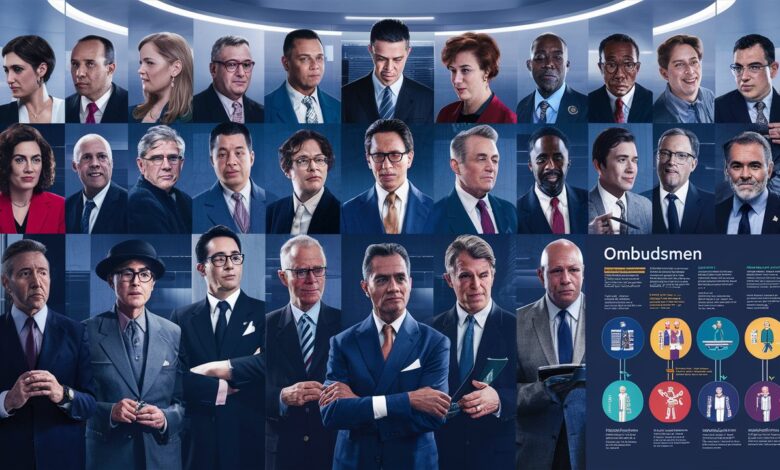What Are Ombudsmänner? Understanding the Role of Ombudsmen in Modern Society

In a world where fairness, accountability, and justice are central to the functioning of democratic systems and institutions, the role of ombudsmänner—known internationally as ombudsmen—has never been more vital. These impartial officials are tasked with investigating complaints from citizens or clients against public authorities, private companies, and large institutions. Whether in healthcare, finance, education, or government, ombudsmänner serve as independent watchdogs who ensure that power is exercised fairly and that every individual has a means of recourse when they feel wronged. But what exactly does an ombudsman do? Why are ombudsmänner so critical to both private and public sectors? And how does their role differ across the world? This article dives deep into the world of ombudsmänner and explains their responsibilities, historical roots, powers, and the value they bring to modern society.
Who Are Ombudsmänner? Definition and Origin
The term “Ombudsmänner” is the German plural of “ombudsman,” which originated from Swedish in the 19th century. The original Swedish “ombudsman” referred to a legal representative or a public advocate who could represent citizens’ interests. Over time, this concept spread to other countries and sectors, evolving into a trusted mechanism for conflict resolution and oversight.
An ombudsman is typically appointed to address complaints, investigate cases of injustice, and recommend corrective action when needed. What distinguishes ombudsmänner from other forms of regulators or inspectors is their independence and neutrality. They do not represent any party but rather ensure fairness, transparency, and justice in administrative actions. Most importantly, they offer a confidential and accessible pathway for individuals to raise concerns, especially when traditional legal routes are either too expensive or inaccessible.
What Does an Ombudsman Do? Roles and Responsibilities
The duties of ombudsmänner vary based on jurisdiction and the sector in which they operate, but the core responsibilities often include:
-
Receiving and Investigating Complaints:
Ombudsmänner serve as a listening post for public grievances. Whether it’s a citizen frustrated with a delayed government service or an employee feeling harassed in a workplace, the ombudsman is trained to assess the situation impartially and investigate where necessary. -
Mediating Disputes:
Rather than escalating conflicts, ombudsmänner often aim to mediate and resolve issues informally. They act as neutral facilitators who can bring both sides to the table and encourage dialogue, which is especially effective in workplace or educational environments. -
Recommending Policy Changes:
One of the most powerful aspects of the ombudsman role is the ability to suggest systemic reforms. By identifying patterns of complaints or recurring administrative issues, ombudsmänner can advise institutions on how to improve their procedures and prevent future grievances. -
Ensuring Transparency and Accountability:
Ombudsmänner promote a culture of openness. When public institutions know that an ombudsman is monitoring complaints, they are more likely to follow ethical guidelines and fair practices. -
Protecting Vulnerable Groups:
In many countries, specialized ombudsmänner exist for sectors like child protection, elder care, and disability rights. These roles ensure that marginalized voices are heard and safeguarded.
Types of Ombudsmänner by Sector
There are various types of ombudsmen depending on the domain in which they serve:
-
Parliamentary Ombudsmen: Found in many democratic countries, they investigate complaints against government bodies.
-
Financial Ombudsmen: Handle complaints related to banking, insurance, and investment services.
-
Healthcare Ombudsmen: Resolve disputes between patients and healthcare providers.
-
Educational Ombudsmen: Mediate issues between students and academic institutions.
-
Corporate Ombudsmen: Found in large organizations, they address internal employee grievances confidentially.
Each type of ombudsman tailors their role to the specific needs of their sector, but all operate under the principle of fairness and impartiality.
The Global Importance of Ombudsmänner
Today, more than 100 countries have established formal ombudsman offices at the national or local level. In the European Union, for example, the European Ombudsman investigates complaints about poor administration in EU institutions. In Canada, provinces have their own ombudsmen to monitor public service delivery. The presence of ombudsmänner worldwide is a testament to their value in promoting human rights, good governance, and justice without litigation.
Moreover, in corporate settings, ombudsmänner help nurture a culture of trust, reducing legal costs and employee turnover by solving disputes internally and fairly. This not only boosts morale but also shields the organization from reputational risks.
Challenges Faced by Ombudsmänner
Despite their noble mission, ombudsmänner face numerous challenges. These include:
-
Lack of Enforcement Powers: In many cases, ombudsmen can only make recommendations, not enforce rulings, which may reduce their effectiveness.
-
Political Interference: Especially in authoritarian regimes, ombudsmänner may struggle to maintain independence.
-
Limited Public Awareness: Many citizens are unaware of the ombudsman’s existence or how to contact them, making outreach and education essential.
Nonetheless, where they are properly supported and empowered, ombudsmänner make a tremendous difference.
Conclusion
Ombudsmänner play a crucial role in ensuring justice, transparency, and accountability across a broad range of sectors. As neutral intermediaries, they bridge the gap between individuals and powerful institutions, ensuring that no complaint goes unheard and no injustice is left unaddressed. Whether in government, finance, healthcare, or business, the presence of an ombudsman builds trust and confidence in systems that affect everyday life. As our global societies grow more complex and interconnected, the role of ombudsmänner will only become more essential in defending rights and resolving disputes fairly.
Frequently Asked Questions (FAQ)
Q1: What is the difference between “ombudsmänner” and “ombudsman”?
A1: “Ombudsmänner” is the German plural form of “ombudsman.” In English, “ombudsman” is often used as a gender-neutral term, while some organizations use terms like “ombudsperson” or “ombuds.”
Q2: Can an ombudsman make legally binding decisions?
A2: In most jurisdictions, ombudsmen make recommendations, not legally binding rulings. However, their findings are often respected and acted upon due to their authority and impartiality.
Q3: How do I file a complaint with an ombudsman?
A3: Most ombudsman offices have official websites where you can file complaints online, by phone, or in writing. You must typically provide details of the incident, parties involved, and any steps you’ve already taken.
Q4: Are ombudsmen only for government-related complaints?
A4: No. There are ombudsmen in many sectors including finance, healthcare, education, and private corporations.
Q5: Why are ombudsmänner important for democracy?
A5: Ombudsmänner enhance democracy by holding institutions accountable, protecting citizen rights, and ensuring fair administrative practices.



